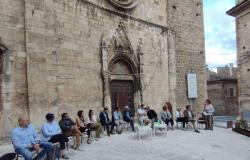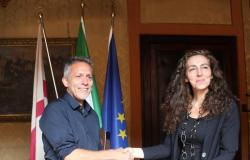«Artificial intelligence will contribute to productivity, but will have to be regulated by governments»
Photo Nicola Eccher.
On the closing day of the Trento Festival of Economics, the speech of the 2001 Nobel Prize winner for economics, Michael Spence, who at the Teatro Sociale spoke about coexistence with global permacrises and the ways in which to deal with them.
This also in light of the book “Permacrisis: A Plan to Fix a Fractured World”, published last September 2023 together with Mohamed El-Erian and Gordon Brown. With Spence, on stage, the editor-in-chief of Il Sole 24 Ore Laura La Posta.
«We are in a confused environment, in which it is difficult to understand how to move and, above all, how to fix a broken world, – the Nobel underlined at the outset. – In this historical period we have had various shocks: climate change, pandemics, geopolitical tensions and the major conflicts we are witnessing.
“There are also secular trends that persist, with production capacity globally increasing like never before.”
Spence then focused on the three ongoing technological transformations that are impacting everyday life: the digital one, with the advent of artificial intelligence; then the revolution of medical and life sciences, which will change radically by coming into contact with AI; finally, the energy transition, the acceleration of which is there for all to see and with increasingly important tools.
«Artificial intelligence can certainly make a great contribution to productivity, but predicting what will happen today is difficult: we can’t do anything but monitor the situation, I certainly imagine a Europe that will invest heavily in digital transformation in the future, – he added Spence. – We don’t know how many jobs we will lose, but there is fear among people that AI could replace them, in many sectors.
«Certainly, in today’s economy it is practically impossible to find a sector in which artificial intelligence cannot be applied.
«This is why we need to make this tool accessible as widely as possible, albeit with reasoning and regulations to mitigate the risks: governments will have to intervene on this.»
Finally, a mention of the energy transition:
«We are late, even if Europe, the USA and China, in particular the latter which is among the largest producers of emissions, are starting to move.
«I believe that a mix of subsidies, on the one hand, and controls on the other, will be needed to pursue these objectives.
«To young people I say experiment and find your passion.»
© All rights reserved





